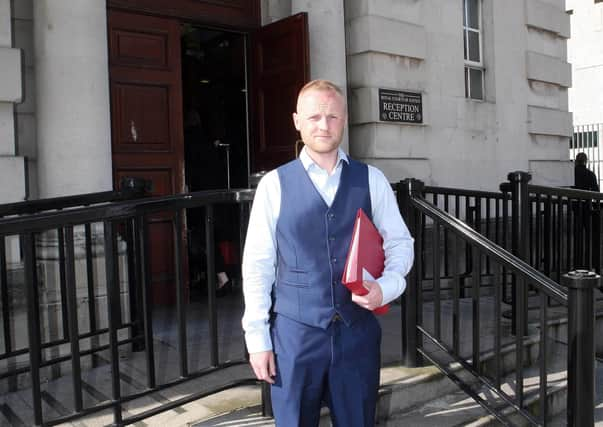Jamie Bryson: Loyalists need to challenge the increasingly expansive decisions of the Parades Commission


However one thing remained the same; the Parades Commission’s increasingly expansive decisions when it comes to regulating and in some cases suffocating the ECHR Article 10 and Article 11 Rights of those who cherish the parading tradition.
The commission initially entered this year’s marching season adopting the position that they would not process any notifications due to the pandemic.
Advertisement
Hide AdAdvertisement
Hide AdI was pleased to represent six marching bands in bringing a challenge against this position.
The Covid-19 regulations conferred no enforcement powers on the commission, and in any event the enabling statute in the form of the Public Processions Act 1998 provides no mechanism for the commission to refuse a notification.
Once a proposed parade organiser properly complies with the statutory obligation to notify the commission of a procession, the only route the commission can thereafter take is to issue a determination. There is no lawful means by which a proper notification can be rejected.
The legal arguments we advanced were supported by the attorney general, subsequent to which the commission performed a u-turn and began accepting notifications.
Advertisement
Hide AdAdvertisement
Hide AdThereafter the commission proceeded to issue a number of determinations. In one, relating to a parade in north Belfast, the commission seemingly invented a new test to be applied- namely whether the parade was ‘new’ or not. This test has no basis in the statute.
It is true that traditional parades are to be looked upon more favourably; that is right and legitimate.
However, that conversely does not mean that ‘new’ parades are to be subjected to a higher burden than parades which have taken place occasionally, or which have only become regular in recent times. To put it succinctly; traditional parades have a lesser burden to discharge; however all other parades — whether ‘new’ or occasional — must start on an equal footing.
The marching band community cannot be expected engage in some trade-off whereby the protection of traditional parades (and let us not forget the assault on many of those) comes at the expense of the development of new parades.
Advertisement
Hide AdAdvertisement
Hide AdIf we are to accept that a ‘new’ parade is to be subject to some form of enhanced burden, then clearly that illuminates a very obvious trajectory; the commission’s work will impede and frustrate the development of new parades.
That is untenable; the commission’s statutory function (objectionable as it is in any event) is not to seek to frustrate the growth of the parading tradition.
There has often been a reluctant acceptance of the decisions of the Parades Commission, without any real strategic or robust legal action to roll-back the increasingly expansive regulation being applied to the marching band cultural tradition.
The PUL (Protestant, unionist, loyalist) community has often expressed outrage at what are perceived to be unjust determinations, but without actively using the legal process to hold the commission accountable.
Advertisement
Hide AdAdvertisement
Hide AdThis year that was different, and the result — played out very publicly — was plain for all to see.
That is something which must be built upon; each band should engage in an intensive program of training to educate a designated member as to the process of the commission, including the mechanism of requesting a review of a decision and gaining a clear understanding of what the legal powers of the commission are, and what they are not.
This will enable swift, strategic, and robust action to challenge the commission going forward.
The commission, like every other public body, is constrained by statute.
Advertisement
Hide AdAdvertisement
Hide AdThe key to challenging and rolling back the expansionist exercise of powers by public bodies always lies in their enabling statute.
——— ———
A message from the Editor:
Thank you for reading this story on our website. While I have your attention, I also have an important request to make of you.
With the coronavirus lockdown having a major impact on many of our advertisers — and consequently the revenue we receive — we are more reliant than ever on you taking out a digital subscription.
Subscribe to newsletter.co.uk and enjoy unlimited access to the best Northern Ireland and UK news and information online and on our app. With a digital subscription, you can read more than 5 articles, see fewer ads, enjoy faster load times, and get access to exclusive newsletters and content. Visit https://www.newsletter.co.uk/subscriptions now to sign up.
Advertisement
Hide AdAdvertisement
Hide AdOur journalism costs money and we rely on advertising, print and digital revenues to help to support them. By supporting us, we are able to support you in providing trusted, fact-checked content for this website.
Alistair Bushe
Editor